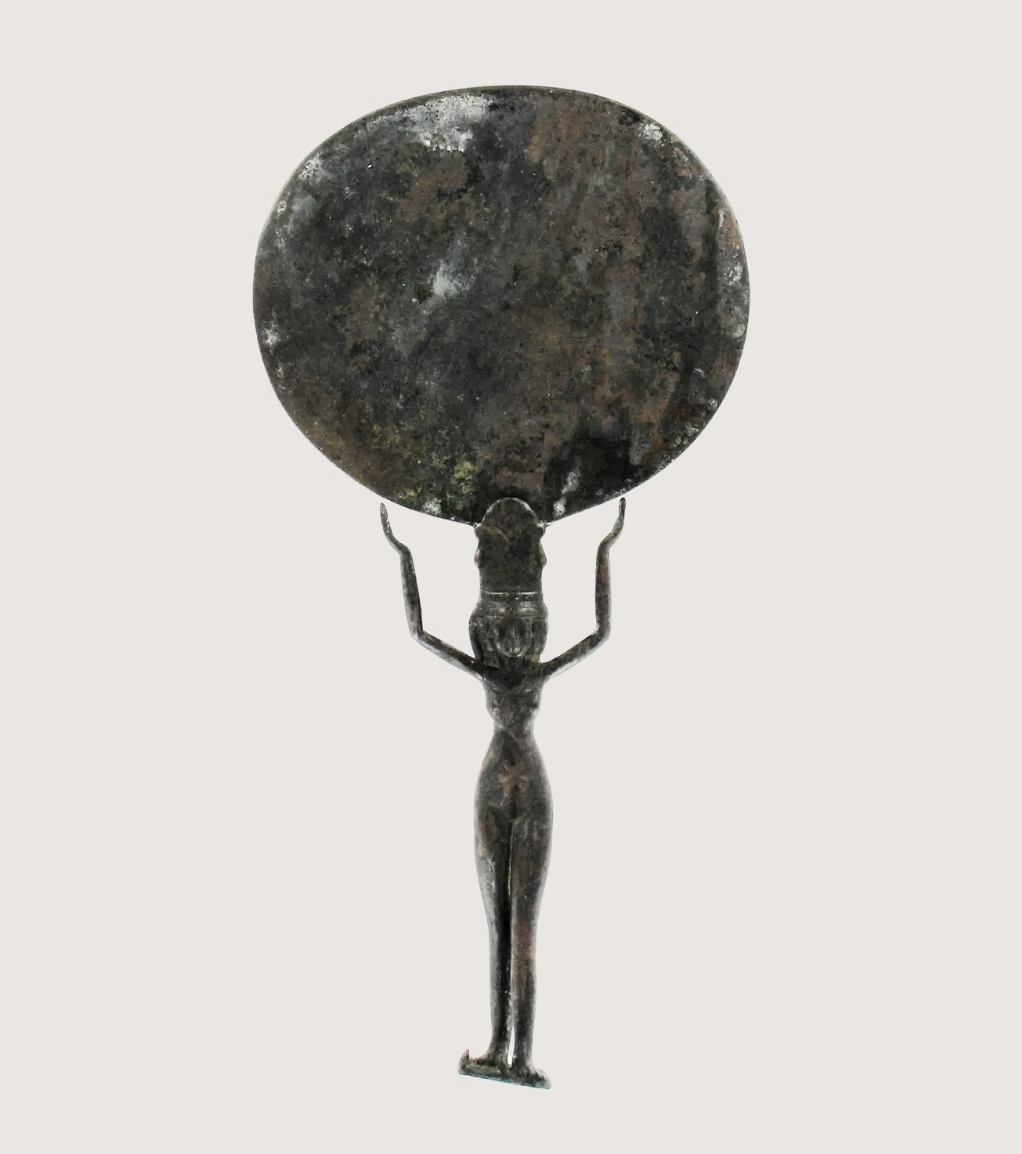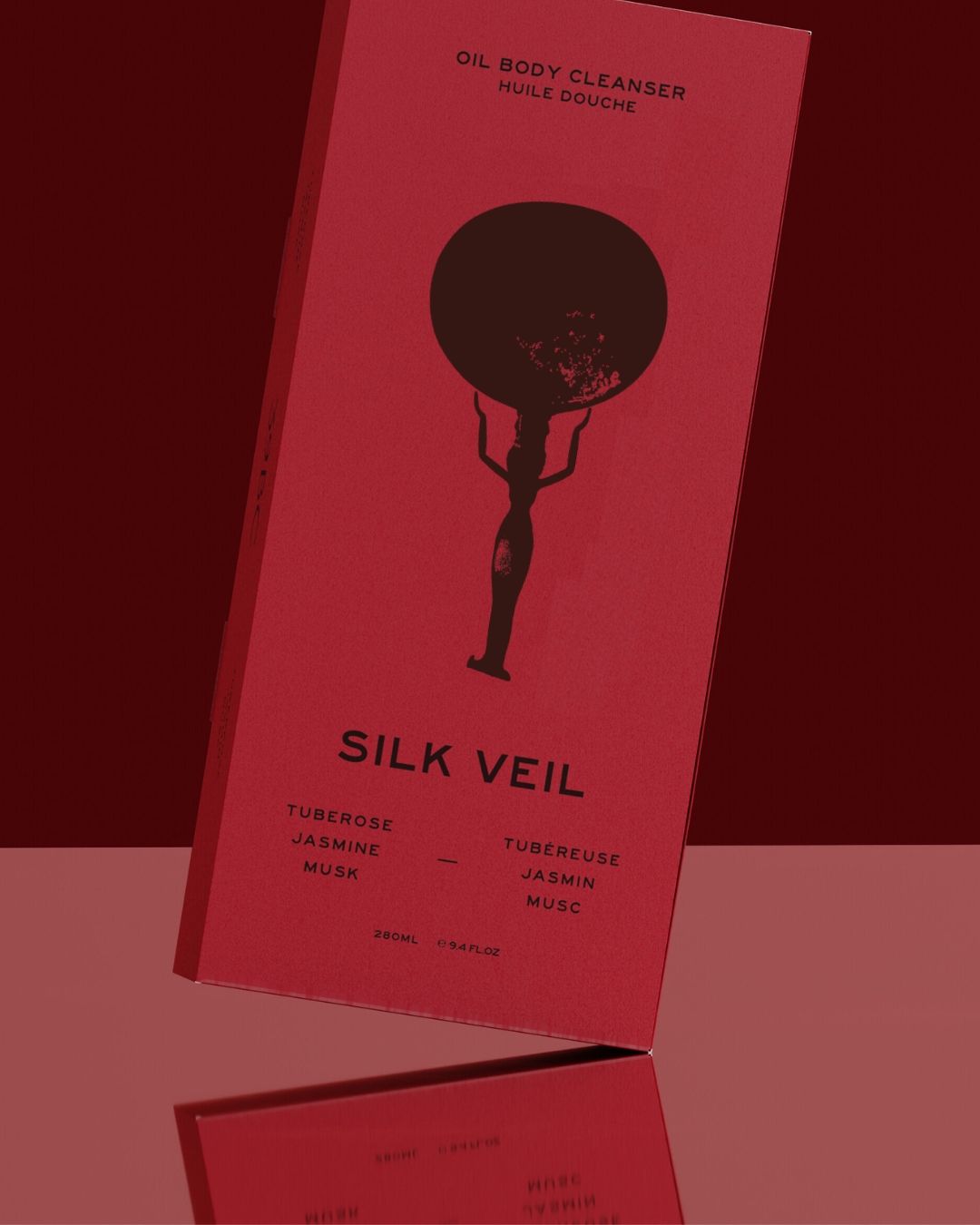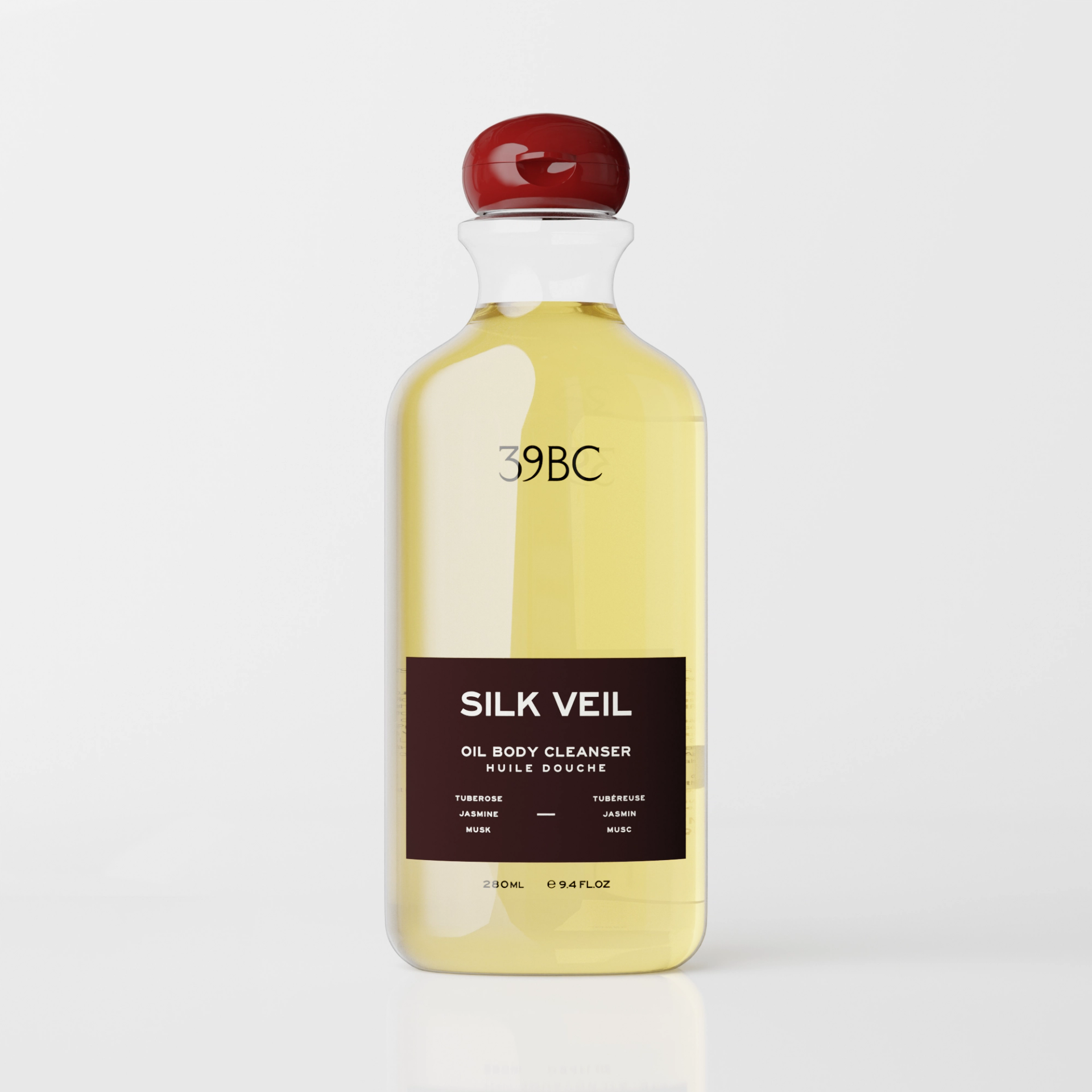
In ancient Egypt, mirrors were never only instruments of vanity. They were conceived as thresholds — objects bridging the mortal and the divine, daily life and eternity. The reflective disk did not merely return an image; it echoed the sun itself, swallowed each evening by the goddess Nut and reborn each dawn. To hold a mirror was to hold vitality, fertility, and the promise of renewal.
This rare Egyptian caryatid mirror, dating to the New Kingdom (c. 1550–1070 BCE), measures just 19.6 cm yet carries extraordinary significance. Its handle takes the form of a young woman, likely linked to Hathor, goddess of love and rebirth. She wears a pleated sheath gown, her arms extending to present two falcons who uphold the bronze disk. No other surviving mirror combines this female form with paired falcons, making it unique among known Egyptian artefacts.
The symbolism is precise. The falcons evoke the celestial eyes of Horus — sun and moon — binding the object to cosmic order. The circular disk mirrored the solar cycle itself: death, renewal, resurrection. In temples, mirrors were offered to Hathor as ritual gifts. Ptolemaic reliefs even show kings presenting mirrors to the goddess so she might behold her “perfect face in the disk,” a gesture believed to sustain the balance of the universe. In tombs, mirrors promised the deceased rebirth in the afterlife.

Here, then, is more than ornament. This mirror was a tool of ancient Egyptian beauty rituals, a funerary talisman, and a sacred offering — an artefact where reflection itself became a form of devotion.
It is this mirror that appears on the box of Silk Veil, a luxury shower oil from 39BC. As its creator explains: “I placed that mirror on the Silk Veil box because this oil is its own coronation. Tuberose, jasmine, musk — they bloom like silk over wet skin, filling the bath with light and fragrance. To hold Silk Veil is to hold history in the palm — an artefact reimagined, devotion reborn for the modern bath.”
Silk Veil continues the lineage of ritual oils once used in pharaonic Egypt, where fragrance was signal, not ornament. Just as the mirror promised renewal, this fine-fragrance bathing oil transforms daily cleansing into ceremony — scent as memory, preparation, and inheritance.
Because in Egypt, as now, beauty was never only surface. It was ritual. It was renewal. It was power made visible through reflection.
